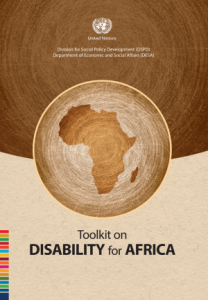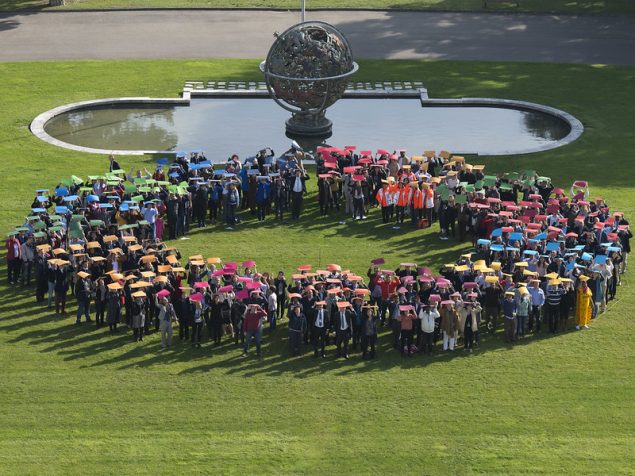The Economic and Social Council,
Recalling General Assembly resolutions 37/52 of 3 December 1982, by which the Assembly adopted the World Programme of Action concerning Disabled Persons, 48/96 of 20 December 1993, by which it adopted the Standard Rules on the Equalization of Opportunities for Persons with Disabilities, and 61/106 of 13 December 2006, by which it adopted the Convention on the Rights of Persons with Disabilities,
Recalling its resolution 2005/9 of 21 July 2005 on the further promotion of equalization of opportunities by, for and with persons with disabilities and protection of the human rights of persons with disabilities as well as General Assembly resolutions 60/131 of 16 December 2005 and 62/127 and 62/170 of 18 December 2007,
Welcoming the fact that since the opening for signature of the Convention on the Rights of Persons with Disabilities and its Optional Protocol on 30 March 2007, one hundred and twenty-five States have signed and seventeen States have ratified the Convention and seventy-nine States have signed and eleven States have ratified the Optional Protocol, and looking forward to their entering into force,
Mindful of the need to design, adopt and implement effective strategies, policies and programmes to promote and protect the rights and well-being as well as to promote the full and effective participation of persons with disabilities in the civil, political, economic, social and cultural spheres on an equal basis with others in order to achieve a society for all,
Stressing the need to enhance complementarity and synergy in the implementation of the United Nations disability agenda through the World Programme of Action concerning Disabled Persons, the Standard Rules on the Equalization of Opportunities for Persons with Disabilities and the Convention on the Rights of Persons with Disabilities,
Encouraging States to continue to formulate comprehensive and coherent policies and action plans, as well as projects, that promote international cooperation and technical assistance, particularly to enhance the capacities of Government agencies and institutions, as well as civil society, including organizations of persons with disabilities, to implement programmes on disability for the equalization of opportunities for, the full enjoyment of all human rights by, and the well-being of persons with disabilities,
Noting with grave concern that persons with disabilities are subject to multiple or aggravated forms of discrimination, and recognizing the critical need to address the negative impact of poverty affecting the majority of persons with disabilities, who continue to be excluded from the benefits of development, such as education and access to gainful and productive employment and decent work as well as appropriate health care and accessible social services,
1. Welcomes the work of the Special Rapporteur on Disability of the Commission for Social Development, and takes note of her report;
2. Decides to renew the mandate of the Special Rapporteur until 31 December 2011 in accordance with the provisions set down in section 4 of the Standard Rules on the Equalization of Opportunities for Persons with Disabilities to further their promotion and monitoring, including the human rights dimensions of disability, and with the provisions of the present resolution;
3. Requests the Special Rapporteur to further:
(a) Advocate the equalization of opportunities for, the full enjoyment of all human rights by, and the well-being of persons with disabilities in all respects, in line with the Standard Rules on the Equalization of Opportunities for Persons with Disabilities, the World Programme of Action concerning Disabled Persons and the Convention on the Rights of Persons with Disabilities;
(b) Create awareness of the Convention on the Rights of Persons with Disabilities, including for its wider signature and ratification by Member States;
(c) Act as a catalyst to promote international and technical cooperation on disability issues, including by identifying strategic areas for the exchange and sharing of expertise, best practices, knowledge, information and relevant technologies in order to enhance the capacity-building of Member States;
(d) Collaborate, in the fulfilment of the above tasks, with all relevant stakeholders, including organizations of persons with disabilities;
4. Calls upon all Governments to continue to cooperate and engage in direct dialogue with the Special Rapporteur and to provide him or her with all the relevant information needed to fulfil the mandate effectively;
5. Calls upon those States and regional integration organizations that have not yet signed or ratified the Convention on the Rights of Persons with Disabilities and the Optional Protocol to consider doing so as a matter of priority;
6. Urges Governments, the Secretary-General, intergovernmental organizations and non-governmental organizations, and invites relevant human rights treaty bodies, relevant bodies and organizations of the United Nations system, including the Bretton Woods institutions, multilateral development agencies and regional commissions, in accordance with their mandates, to create greater awareness and support for the further implementation of the World Programme of Action concerning Disabled Persons, the Standard Rules on the Equalization of Opportunities for Persons with Disabilities and the Convention on the Rights of Persons with Disabilities, and to promote the enjoyment of all human rights and fundamental freedoms as well as the equalization of opportunities and the well-being of persons with disabilities, and to improve consultation, exchange of information and coordination;
7. Encourages Governments, intergovernmental organizations, non governmental organizations and the private sector to continue to contribute to the United Nations Voluntary Fund on Disability in order to support the activities of the Special Rapporteur as well as new and expanded initiatives to strengthen national capacities for the equalization of opportunities by, for and with persons with disabilities;
8. Expresses concern at the insufficiency of resources for the Special Rapporteur, and recognizes the importance of providing adequate resources for the implementation of the mandate by the Special Rapporteur;
9. Requests the Special Rapporteur to submit to the Commission for Social Development an annual report on his or her activities in implementing the present resolution.




